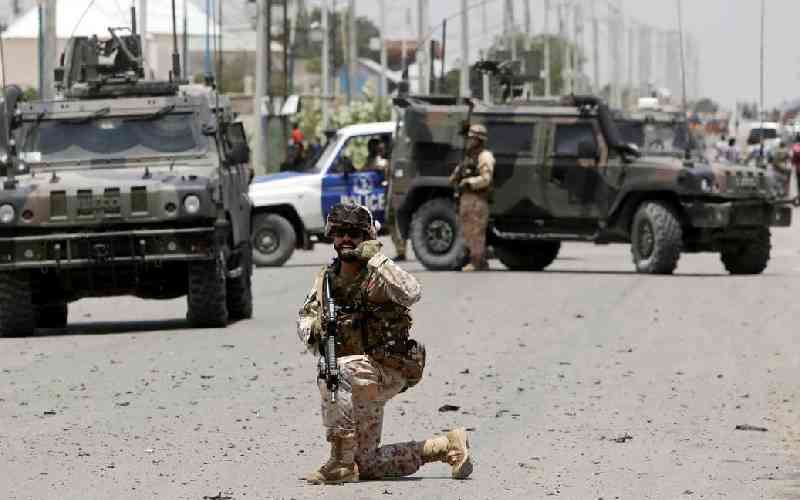Sentencing Handed Down in Dusit D2 Terror Attack Case

Two individuals found guilty of facilitating the devastating 2019 terror attack at the Dusit D2 Complex in Nairobi have each been handed 30-year jail sentences, to run consecutively, totaling 60 years in prison. The landmark judgment was delivered on Thursday, June 19, by the Kahawa Anti-Terror Court.
The convicted individuals are Hussein Abdile Ali, a 61-year-old madrassa teacher, and Mohamed Abdi Ali, a 22-year-old. Hussein Abdile Ali received 15 years for 14 counts of facilitation of a terrorist act and an additional 15 years for conspiracy to commit an offence under the Prevention of Terrorism Act 2012. Mohamed Abdi Ali was also sentenced to 15 years for conspiracy to commit an offence and another 15 years for facilitation of a terrorist act under the same Act.
The January 15, 2019, attack on the luxurious Dusit D2 Hotel Complex tragically claimed the lives of 21 people, including foreign nationals, and left many others with life-threatening injuries. The incident involved Al Shabaab militants who stormed the premises, leading to a 12-hour siege captured by CCTV footage, showing armed men spraying bullets at victims.
Lady Justice Diana Kavedza, in delivering the sentence, affirmed that the prosecution had proven its case beyond reasonable doubt. The court found that one of the suspects facilitated the attack by transferring Ksh836,900 through mobile money to an Al Shabaab accomplice between October 14, 2018, and January 12, 2019, in Mandera County. The prosecution presented a total of 45 witnesses, whose testimonies were crucial in securing the convictions. Initially, there were three suspects, but one had pleaded guilty earlier.
The Director of Public Prosecutions had urged the court to impose maximum and consecutive sentences to underscore the severity of the convicts' actions and to serve as a strong deterrent against future acts of terrorism, thereby affirming the justice system’s commitment to accountability.
Justice Kavedza highlighted several aggravating factors that heightened the culpability of Abdile and Ali, including their facilitation of persons to use weapons and the high number of victims. She noted the enduring emotional scars on those maimed and families who lost loved ones, observing that probation reports indicated a lingering fear among victims, with some declining interviews. The judge emphasized that the attack was not merely against a building but struck at the soul of the country, exposing it as a 'danger zone' and negatively impacting the tourism sector. She stressed that it was not a spur-of-the-moment act but a widespread conspiracy.
Specifically, Justice Kavedza stated that Abdile deliberately facilitated movement, while Ali fabricated his brother's death to obscure traces while financing the terrorists. Although acknowledging that the convicts were first offenders and not directly involved in the attack, with Abdile being young and Ali elderly, the judge concurred with the prosecution that consecutive sentences were necessary. She reasoned that a concurrent sentence would not adequately address their criminality, asserting that only consecutive sentencing could ensure the punishment was legally sound and appropriate for the crime committed, which resulted in lives lost, business disruption, and numerous injuries. Justice Kavedza concluded, "Had the two convicts not facilitated and financed the terrorist attack, it would not have happened. Without sympathizers and financiers, terrorism cannot happen."










